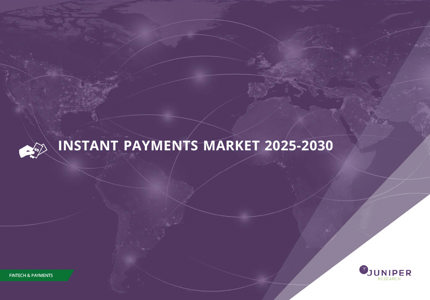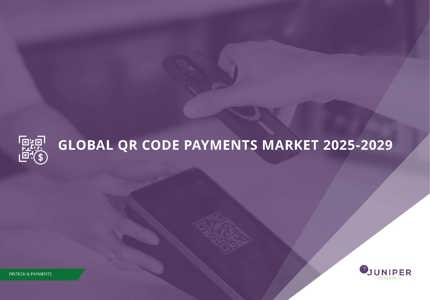What Does Boku’s New eMoney Licence Mean for Brazil’s Digital Payments Revolution?
At the end of July, the news dropped that Boku, a global leader in localised payment solutions, has received a Payment Institution licence from the Central Bank of Brazil. This authorisation allows Boku to operate as both a Payment Initiator and an eMoney Issuer; positioning the firm to take part in Brazil’s developing Open Finance environment as a Payment Initiator Service Provider (PISP). With this licence, Boku plans to offer Pix Automático, a newly released feature of Brazil’s Pix instant payment system, to merchants from early 2026; marking an important step in enabling seamless Pix payments without the need for any redirection.
In acquiring this licence, Boku has positioned itself to effectively take advantage of the regulatory shifts that are making payments more interoperable and user-friendly in the nation; including helping millions of Brazilians, especially those without access to credit cards, to benefit from secure and seamless recurring payments for streaming, subscriptions, and digital goods.
Pix Automático
Pix, introduced by the Central Bank of Brazil in 2020, has quickly become the most widely used payment method in the country. The system is particularly popular among younger consumers who bank with digital-first platforms such as Nubank.
Pix Automático was launched in June 2025 in response to increasing consumer demand for convenience. It allows for recurring payments for services such as streaming and subscriptions, which are particularly important in a market where convenience often takes precedence over brand loyalty. Boku reported that 78% of Brazilian respondents would consider changing their payment method for advantages such as lower fees, greater security, or improved ease of use; illustrating this change in consumer behaviour.

Source: Pix
The introduction of Pix Automático adds support for recurring payments in addition to the existing facility for one-off payments. It will introduce recurring payment functionality; enabling merchants to offer subscription billing directly within the Pix framework. This opens up new opportunities for merchants with subscription-based business models, such as digital entertainment services, by streamlining the payment collection process. Together, these developments can reduce checkout friction, boost conversion rates, and broaden access for unbanked consumers, thereby accelerating the regional adoption of local payment methods.
Since its introduction, Pix has revolutionised the payments landscape in Brazil; significantly increasing the adoption of digital transactions. As of 2025, over 70% of adults and around 15 million businesses use Pix, with the system representing 45% of all payments and 30% of eCommerce transactions nationwide. Altogether, Pix now handles 20% of Brazil’s total transaction value; highlighting the scale of this shift towards digital payments.
What Does Boku’s New Licence Mean?
With its new licence, Boku is now authorised as a payment institution in Brazil; enabling it to initiate payments and issue electronic money. This authorisation is a necessary requirement for future involvement in Pix and Open Finance; positioning Boku to enhance its capabilities in the market as further approvals are received.
Juniper Research believes that Boku has positioned itself strategically; developing a strong foothold in Brazil, and setting the company up for rapid expansion across Latin America. As Brazil’s leadership in digital payment methods influences neighbouring countries, Boku will have a much simpler task in taking its solutions to these countries, as it will be seen as a trusted and reliable digital payments service provider.
Furthermore, Boku can offer these platforms and merchants brand new, localised payment solutions that support both one-time and recurring payments.
Other LATAM Markets Taking Note
Brazil is leading digital payments in Latin America, but other markets are also innovating. Colombia plans to launch a Pix-inspired real-time payment system in September 2025 via Bre-B, while Mexico and Argentina have systems such as DiMo and Transferencias 3.0. Additionally, if Boku can obtain the necessary authorisations and transact with Pix Automático as early as next year, the company is well positioned to capture an even larger share of the market.
Juniper Research also predicts that financial inclusion is to be enhanced as a result, as the democratisation of digital payments in Brazil will be swiftly adopted by other Latin American markets; enabling access to facilities such as subscription-based digital services for the first time. It is anticipated that Boku can use its newfound presence in Brazil as a springboard for further fintech innovation across Latin America.
In conclusion, the acquisition of its new Payment Institution licence represents a strategic leap for Boku; unlocking advanced Pix-powered payment experiences for Brazilian residents. This positions Boku as a key player, not only in Brazil, but across Latin America’s digital economy as it evolves.
As a Research Analyst in Juniper Research's Fintech & Payments team, Thomas provides up-to-date trends analysis, competitive landscape appraisal, and market sizing for industries such as Digital ID & Verification and Merchant Fraud Prevention.
Latest research, whitepapers & press releases
-
 ReportJanuary 2026IoT & Emerging Technology
ReportJanuary 2026IoT & Emerging TechnologyPost-quantum Cryptography Market: 2026-2035
Juniper Research’s Post-quantum Cryptography (PQC) research suite provides a comprehensive and insightful analysis of this market; enabling stakeholders, including PQC-enabled platform providers, specialists, cybersecurity consultancies, and many others, to understand future growth, key trends, and the competitive environment.
VIEW -
 ReportJanuary 2026Telecoms & Connectivity
ReportJanuary 2026Telecoms & ConnectivityMVNO in a Box Market: 2026-2030
Juniper Research’s MVNO in a Box research suite provides Mobile Virtual Network Enablers, Mobile Virtual Network Aggregators, and other players with detailed analysis and strategic recommendations for monetising demand for MVNO in a Box services.
VIEW -
 ReportDecember 2025
ReportDecember 2025AI Agents for Customer Experience Platforms Market: 2025-2030
Our comprehensive AI Agents for Customer Experience Platforms research suite comprises detailed assessment of a market that is set to disrupt mobile communications. It provides stakeholders with insight into the key opportunities within the AI agents for customer experience platforms market over the next two years.
VIEW -
 ReportDecember 2025Fintech & Payments
ReportDecember 2025Fintech & PaymentseCommerce Fraud Prevention Market: 2025-2030
Our eCommerce Fraud Prevention research suite provides a detailed and insightful analysis of this evolving market; enabling stakeholders from financial institutions, law enforcement agencies, regulatory bodies and technology vendors to understand future growth, key trends, and the competitive environment.
VIEW -
 ReportNovember 2025Telecoms & Connectivity
ReportNovember 2025Telecoms & ConnectivityeSIMs & iSIMs Market: 2025-2030
Juniper Research’s eSIMs and iSIMs research suite offers insightful analysis of a market set to experience significant growth in the next five years. The research suite provides mobile network operators (MNOs), original equipment manufacturers (OEMs), and eSIM management and platforms vendors with intelligence on how to capitalise on the market growth, and guidance on how eSIM-only devices and sensors, SGP.42, in-factory provisioning, and iSIMs will change the competitive landscape.
VIEW -
 ReportNovember 2025Fintech & Payments
ReportNovember 2025Fintech & PaymentsModern Card Issuing Platforms Market: 2025-2030
Our Modern Card Issuing Platforms Market research suite provides a detailed and insightful analysis of this evolving market; enabling stakeholders from banks, financial institutions, fintech companies, and technology vendors to understand future growth, key trends, and the competitive environment.
VIEW
-
 WhitepaperJanuary 2026IoT & Emerging Technology
WhitepaperJanuary 2026IoT & Emerging TechnologyPreparing for Q-Day: Post-quantum Security Shift
Our complimentary whitepaper, Preparing for Q-Day: Post-quantum Security Shift, assesses the factors which are increasing interest in adopting PQC, and challenges to PQC adoption. Additionally, it includes a forecast summary of the global spend on PQC by 2035.
VIEW -
 WhitepaperJanuary 2026Telecoms & Connectivity
WhitepaperJanuary 2026Telecoms & ConnectivityHow Fintechs and Retail Companies Are Changing Mobile Services
Our complimentary whitepaper, How Fintechs and Retail Companies Are Changing Mobile Services, explores the key enterprises entering the MVNO market and launching mobile services via MVNO in a Box partners. It also provides forecasts for total MVNO revenue from mobile subscribers in 2030.
VIEW -
 WhitepaperJanuary 2026IoT & Emerging Technology
WhitepaperJanuary 2026IoT & Emerging TechnologyTop 10 Emerging Tech Trends 2026
See which emerging technologies will shape enterprise strategy and investment in 2026; from post-quantum cryptography to neuromorphic computing and next-generation infrastructure.
VIEW -
 WhitepaperDecember 2025Telecoms & Connectivity
WhitepaperDecember 2025Telecoms & ConnectivityHuman + AI: Drivers of Customer Experience AI Agents in 2026
Our complimentary whitepaper, Human + AI: Drivers of Customer Experience AI Agents in 2026, examines the key drivers of the AI agents for customer experience platforms market in 2025.
VIEW -
 WhitepaperDecember 2025Fintech & Payments
WhitepaperDecember 2025Fintech & PaymentsBeyond Chargebacks: The True Cost of Fraud for Digital Commerce
Our complimentary whitepaper, Beyond Chargebacks: The True Cost of Fraud for Digital Commerce, examines the state of the eCommerce fraud prevention market; considering the impact of evolving digital fraud strategies, including key trends such as identity theft, account takeovers, chargebacks, policy abuse and friendly fraud.
VIEW -
 WhitepaperNovember 2025Telecoms & Connectivity
WhitepaperNovember 2025Telecoms & ConnectivityeSIM-only Devices: The Impact on Operators, Consumers, and IoT
Our complimentary whitepaper, eSIM-only Devices: The Impact on Operators, Consumers, and IoT, explores the challenges and opportunities for the three segments, with a particular focus on eSIM-only smartphones and SGP.42.
VIEW
-
Fintech & Payments
Modern Card Issuing Platforms to Issue 1.6 Billion Payment Cards in 2030, as Banks Shift Focus From UX to Cost Efficiency
January 2026 -
IoT & Emerging Technology
Post-quantum Cryptography Market to Exceed $13 Billion by 2035 as Q-Day Awareness Accelerates
January 2026 -
Fintech & Payments
Digital Wallets: QR Codes to Constitute Half of All Wallet Transactions Globally Over Next Five Years
January 2026 -
Telecoms & Connectivity
MVNO in a Box Platforms to Drive MVNO Market to 438 Million Subscribers Globally by 2030
January 2026 -
IoT & Emerging Technology
Juniper Research Unveils Top 10 Emerging Tech Trends to Watch in 2026
January 2026 -
Fintech & Payments
Digital Identity App Usage to Hit 6.2 Billion by 2030, Driven by Shift to Decentralised Models
December 2025























